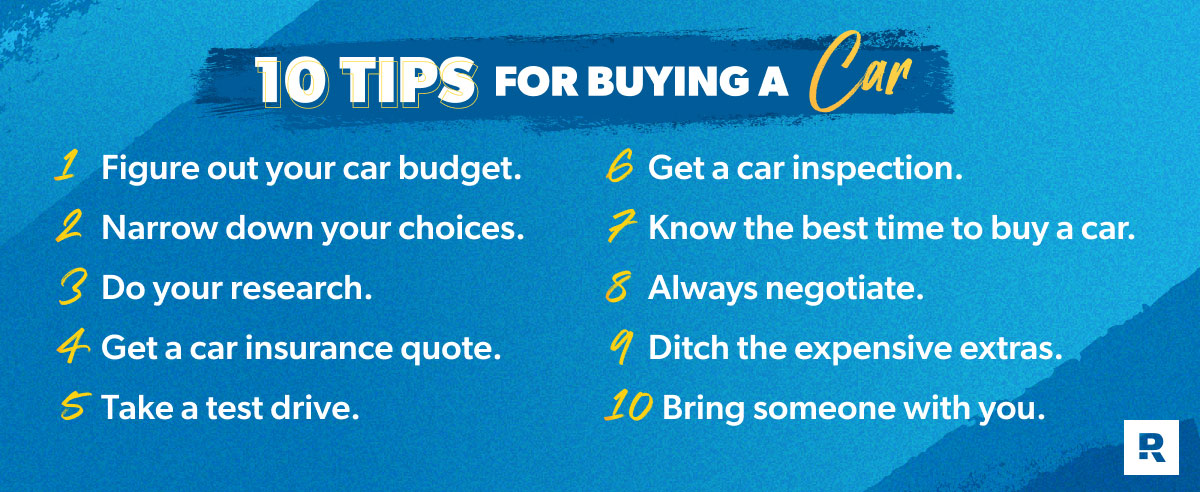Shop At Haya: Your Ultimate Shopping Guide
Discover the best shopping tips, trends, and deals for a smarter buying experience.
Drive Away Smarter: Your Playbook for Car Buying
Unlock the secrets to smarter car buying! Discover expert tips and strategies to drive away with your dream car today.
Top 5 Tips for Negotiating the Best Price on Your Next Car
When it comes to negotiating the best price on your next car, preparation is key. Begin by researching your desired vehicle to understand its market value, features, and any ongoing promotions. Websites such as Kelley Blue Book and Edmunds can provide a solid foundation for your negotiation. Once you have this information, it's beneficial to create a list of comparable vehicles in your area, which can give you leverage in discussions. Always approach the negotiation with a clear budget in mind and be prepared to patiently walk away if the terms don't meet your expectations.
During the negotiation process, remain calm and confident, while listening carefully to the salesperson's offers. Use phrases like, "I know this vehicle typically sells for..." and refer to the data you've collected. It's important to focus not only on the vehicle's price but also on financing options and possible trade-in value, as these can influence the overall cost. Lastly, don't hesitate to ask for additional perks, such as extended warranties or free service packages, to sweeten the deal. By following these strategies, you can effectively negotiate a better price on your next car purchase.

Understanding Financing Options: What You Need to Know Before You Buy
When embarking on a significant purchase, whether it's a new home, car, or other high-ticket items, understanding financing options is crucial. Financing can significantly impact your overall costs, making it essential to explore various avenues. Common financing options include traditional loans, credit cards, and personal loans. It's also wise to consider government programs or grants that may be available to assist specific demographics or purchase types. Taking the time to research and compare these options can help you make a more informed decision and ensure you find the best rates and terms for your financial situation.
Before you commit to any financing option, be sure to assess your financial health. Create a detailed budget that includes your current income, expenses, and any existing debt. This will provide you with a clearer picture of what you can afford regarding monthly payments and total loan amounts. Additionally, educate yourself about the interest rates, fees, and terms associated with each financing method. Understanding the long-term implications of your financing choice can save you money and help you avoid pitfalls that lead to financial strain in the future.
Is Buying New or Used Right for You? A Comprehensive Comparison
When deciding whether buying new or used is right for you, it's essential to weigh the pros and cons of each option carefully. New vehicles often come with the latest technology, warranties, and the peace of mind that comes with being the first owner. However, they also come with a hefty price tag and a rapid depreciation rate, losing significant value as soon as you drive them off the lot. On the contrary, used cars tend to be more affordable and can provide excellent value, allowing you to avoid the steep depreciation that affects new models. Nevertheless, the risks of purchasing a used car can include hidden maintenance issues and a lack of warranty coverage, making thorough inspections and research crucial.
Ultimately, the decision of buying new or used should align with your financial situation, lifestyle, and preferences. Consider the following factors to aid in your decision-making process:
- Budget: Determine how much you can afford not only for the purchase but also for insurance, maintenance, and fueling.
- Usage: Assess how often and for what purpose you will be using the vehicle. If you plan to drive frequently, reliability becomes paramount.
- Technology needs: Decide whether the latest features matter to you or if previous models with essential functions will suffice.